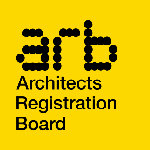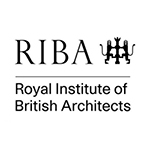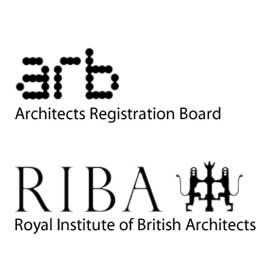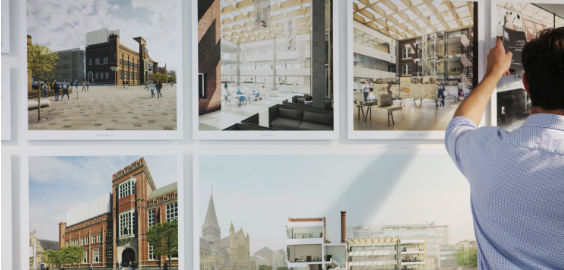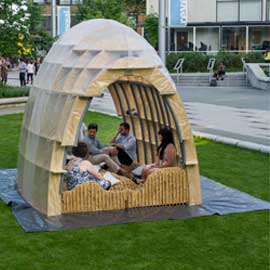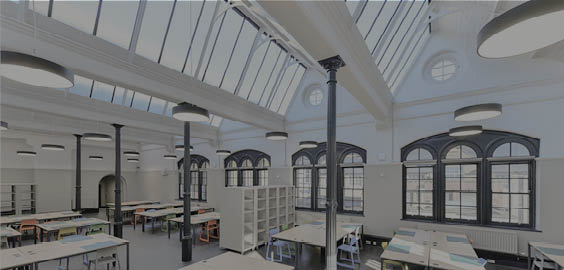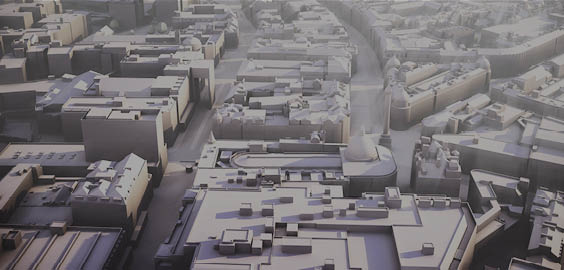The Architect Degree Apprenticeship is a design-led programme
and at least half of the study time is focused on the development of key
architectural design skills.
The design projects
are supported by taught modules and this material includes:
- Practice
Management and Law
- Design,
Sustainability and Technology
- Theory
of Architecture
- Architectural
Research
This integration of
taught modules and studio projects leads to a holistic approach, informing
design decisions and enabling the apprentices to tackle increasingly complex
and challenging architectural design projects.
Our assessment
methods have been designed to contribute to professional development, by
reflecting authentic architectural practice. The design modules are assessed
through portfolios of 2D (plans, sections, elevations etc) and 3D work
(analogue and digital models), supported by reflective journals to evidence
critical scholarship. Technology, environmental, and management outputs are
assessed by means of reports that replicate those undertaken in professional
practice.
Apprentices can
communicate their Student Selected Investigation (the programme’s equivalent of
a dissertation) in a medium of their choice, to suit their academic strengths. Past
examples have included traditional written outputs, podcasts, videos, exhibitions,
reports etc.
End Point Assessment
As
part of the programme, the apprentice will sit their Part III exams, which forms
a component of the End Point Assessment (EPA). The Institute for
Apprenticeships and Technical Education (2020) defines this as follows: ‘…rigorous,
robust and independent End Point Assessment (EPA) gives employers confidence
that apprentices can actually perform in the occupation they have been trained
in and can demonstrate the duties, and knowledge, skills and behaviours set out
in the occupational standard’. For details of the current EPA for your standard please consult the IFATE Apprenticeship standards / Institute for Apprenticeships and Technical Education webpage .
This apprenticeship
normally takes 48 months part-time to complete; it includes the Part II
component (the M.Arch), the Part III exam, and an EPA that will typically be
completed within the last 6 months, that includes a professional interview and
the completion of the Case Study component of the Part III award. Full details are
available on the IFATE website.
Full details on the modules for each year of the programme can be found below.
 Option for Placement Year
Option for Placement Year Option for Study Abroad
Option for Study Abroad

 Northumbria’s Architect Degree Apprenticeship represents a remarkable opportunity to undertake
postgraduate qualifications to become an Architect without having to leave
full-time paid employment to continue your studies. There are also no tuition
fees for the apprentice.
Northumbria’s Architect Degree Apprenticeship represents a remarkable opportunity to undertake
postgraduate qualifications to become an Architect without having to leave
full-time paid employment to continue your studies. There are also no tuition
fees for the apprentice.